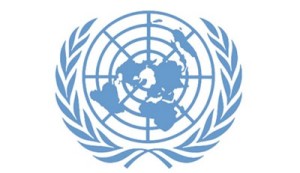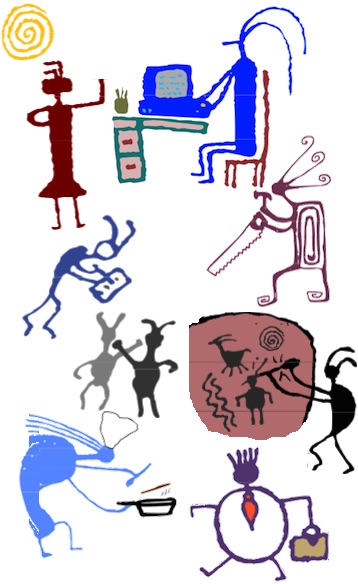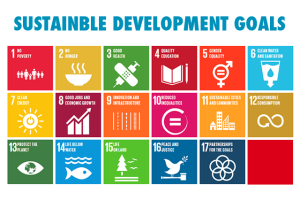 Whilst trying to make a list of all of the Executive Coordinators of the United Nations Volunteers program since UNV began in 1970, to update UNV’s profile on Wikipedia, I found quite a delicious document from 1974, which provides the most detailed history of the origins of the UNV program that I have ever read – origins I don’t think most people are aware of, including most staff at UNV – as well as an evaluation of UNV’s first three years of operation.
Whilst trying to make a list of all of the Executive Coordinators of the United Nations Volunteers program since UNV began in 1970, to update UNV’s profile on Wikipedia, I found quite a delicious document from 1974, which provides the most detailed history of the origins of the UNV program that I have ever read – origins I don’t think most people are aware of, including most staff at UNV – as well as an evaluation of UNV’s first three years of operation.
Some things have changed quite a lot at UNV since this document was published – but some have stayed the same.
The article is The Platonic Acorn: A Case Study of the United Nations Volunteer. It’s by Robert A. Pastor who, at the time of this paper’s publication in 1974, was a graduate student at the Kennedy School of Government at Harvard University. Pastor was a former Peace Corps volunteer who went on to many high-profile international endeavors: he was a member of the National Security Council Staff during the administration of President Jimmy Carter, he was associated with various universities, and also served as a Senior Fellow at the Carter Center, where he established the programs on Latin America and the Caribbean, democracy and election-monitoring, and Chinese village elections. He died of colon cancer in 2014.
His paper about the first years of UNV was published in the journal International Organization, published by Cambridge University Press on behalf of the International Organization Foundation. This article appeared in Volume 28, Issue 3 July 1974, pp. 375-397, and it’s accessible online, for free, from JSTOR. The Abstract for his paper:
This article presents both a history and an administrative analysis of the United Nations Volunteers, an international organization established by a General Assembly resolution in December 1970. The hope that the new organization would presage a new era of multinational volunteerism has proven groundless. In seeking to explain the ineffectiveness of the UN Volunteers, I look inside the organization and find that it has little or no control over its six principal functions. This extreme decentralization of responsibility is then explained not by a static description of the institutional but by focusing on the dynamic process by which state and transnational actors exercised influence during the different stages of the organization’s establishment and development. Those actors whose autonomy was most jeopardized by a new volunteer organization were most active in defining and limiting the scope of its operations. The relative lobbying advantages of state and transnational actors meshed with bureaucratic and budgetary constraints to ensure an enfeebled organization.
Whew!
Pastor is very critical of UNV’s recruitment and placement processes in particular, as it slowed volunteer placement to a crawl. The problem was that, in the 1970s, each stage in the UNV selection process was managed by a different organization in a different location, resulting in 11 different stages between the volunteer-involving organization and the applicant. As a result, as of March 1973, UNV had filled just 93 posts from approximately 400 requests. In addition, 85 percent of volunteers were from least developed countries (LDCs). Then, it was seen as a problem, because the program was supposed to be “universal”, with a significant number of young volunteers from industrialized countries:
The organizational process also helps to explain why there is such a high percentage of volunteers from LDCs, and may help predict why this is likely to continue. Many applicants from LDCs view the UNV as a step into the UN civil service, and thus they are willing to tolerate longer delays than their counterparts in the developed world who generally view volunteer service as precisely that. The result, that LCD volunteers currently count for nearly half of all volunteers, is a bit ironic since one of the original purposes of volunteerism was to exploit the skill surplus of the developed countries.
I have no idea what the timeline is now between the creation of a UNV assignment and placement of a person into that assignment, but mentalities regarding people from developing countries as UNV has greatly changed: UNV now prides itself on a high percentage of volunteers from developed countries, the idea being that it is a reflection of south-to-south cooperation. The average age of UNVs has also increased, from people in their 20s when the program started to 38 now – a program originally designed to channel the energies of youth has become something quite different.
Another criticism by Pastor is that “Although volunteers are supposed to work directly with host country people, they find themselves working with and accountable only to foreign experts.” In the last few years, UNV has focused on its capacity to be a low-cost staffing solution for UN agencies, so this criticism could still be made – and may become a greater issue.
Pastor questions UNV’s ability at the time to fulfill specialized requests for volunteers, and suspects the level of specialization requested is much higher than what is actually necessary. He provides imaginary, outrageous examples of such requests, such as for a “French-speaking sand dune fixation expert.” He says, “Assuming that these specialists exist, the likelihood of finding one who would volunteer is negligible, while the price of the search is exorbitant.” Pastor’s paper was written more than two decades before the Internet became widely used in the USA, and then grew exponentially globally; recruitment of highly-specialized candidates for volunteering is now easy for most situations, and the number of applicants for these assignments shows an abundance of experts willing to take on such volunteering roles.
Another criticism in the document is if the UNV program was, in fact, a volunteer program because of the “high professional calibre” of volunteers – meaning the degree of expertise of the volunteers somehow makes them not really volunteers anymore. He notes that UNV “insists on selling its product as an inexpensive substitute for experts.” Since then, thankfully, the understanding of the word volunteer has changed, and it does not mean amateur, unskilled, or inexperienced. But for UNV now, in 2017, what does volunteer mean? In the USA, a person is a volunteer at a nonprofit or other mission-based organization if he or she is not paid by that agency for services rendered. In fact, the federal agency in charge of regulating labor has strict guidelines on who may be called a volunteer – and who may not. As UNVs, especially national UNVs from the same country where they are serving, receive excellent compensation, called a stipend rather than a salary, what makes them a volunteer? That I cannot answer.
Pastor’s review of UNV is a fascinating document which offers a lot of challenging questions about UNV – and some of these questions, IMO, need to be asked again. I’m so sorry I can’t thank him for his paper, and talk with him about how UNV has evolved. I would have loved to hear what he thought of the Online Volunteering service in particular, which I think meets many of the goals originally set out for UNV but not realized.
In the course of my research, I also found the book The Role and Status of International Humanitarian Volunteers and Organization: The Rights and Duty to Humanitarian Assistance by Yves Beigbeder, ISBN 0-7923-1190-6. It was published in 1991, and from the pages available on Google, it seems to also have some scathing analysis of UNV’s performance up to that date. It’s hard to find information about the author; there’s scant information online about him, though he seems to be a prolific writer. Online, it says he served at the Nuremberg Tribunal in 1946 and had a “long career in UN organizations as a senior official.” Beigbeder’s book is hard to get hold of; it is offered online for about $100, well beyond the budgets for most folks interested in evaluating volunteer placement agencies (and beyond my own budget as well).
In the book, Beigbeder says that the UNDP Governing Council asked the UNV administrator to undertake a review of the UNV program in 1986 and in 1987. The report was a mixed bag on UNV performance at that time: it was noted that, in Yemen, “UNVs are quickly operational, less demanding in support services and more adaptive to difficult, harsh and isolated working conditions than other technical assistance staff.” But In Papua New Guinea, results were good and bad. “When UNVs have not done well, the cause was either poor project design, noninvolvement by supervisors in developing the job description, job duties imprecise or modified after the arrival of the UNV, wrong selection, or language deficiencies.” All of those can still be problems with UNV assignments – or for any international placement organization, for that matter. Addressing those problems is an ongoing issue.
Finally, my search also lead me to the self-published book Not Only a Refugee: An American UN Volunteer in the Philippines by Eleanor Grogg Stewart, about her time in the early 1980s, specifically in and around 1982, when she worked in a refugee camp. Several pages from her book are available on books.google.com. It’s detailed account of the early days of UNV, as well as trying to navigate UN bureaucracy.
It’s a shame that early accounts and evaluations of nonprofit organizations, international aid agencies, government programs and other mission-based entities are forgotten. It’s so interesting to read how much has changed, how much has improved – and how far we still have to go. How can we know if we’re making a difference if we aren’t looking at what our agencies promised in the past?
One final note: On 31 May, 2017, the Executive Board of UNDP, UNFPA and UNOPS convened in New York to discuss the findings of an independent evaluation of the United Nations Volunteers (UNV) programme and UNV’s new Strategic Framework goals and objectives for 2018-2021. Here is a press release about the meeting, which says Nina Retzlaff is the independent evaluator of the UNV Strategic Framework 2014-2017 and that she elaborated on key points and early findings from her evaluation at the New York meeting, noting that there was a high level of satisfaction from UN partners on the work of UN Volunteers and that “91% of UN partners confirm UNV responds to their needs, [and that] 92% of the UN Volunteers report a satisfactory experience.” She also said that “UNV’s programmatic niche is in Youth and Volunteer Infrastructure.” I would love to read the evaluation but, cannot find out if it’s even been finished, let alone published. It would be fascinating to read how it compares to these earlier aassessments.
Also see:





